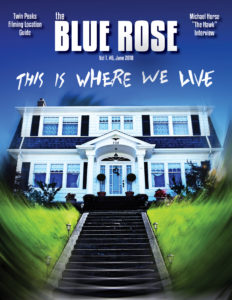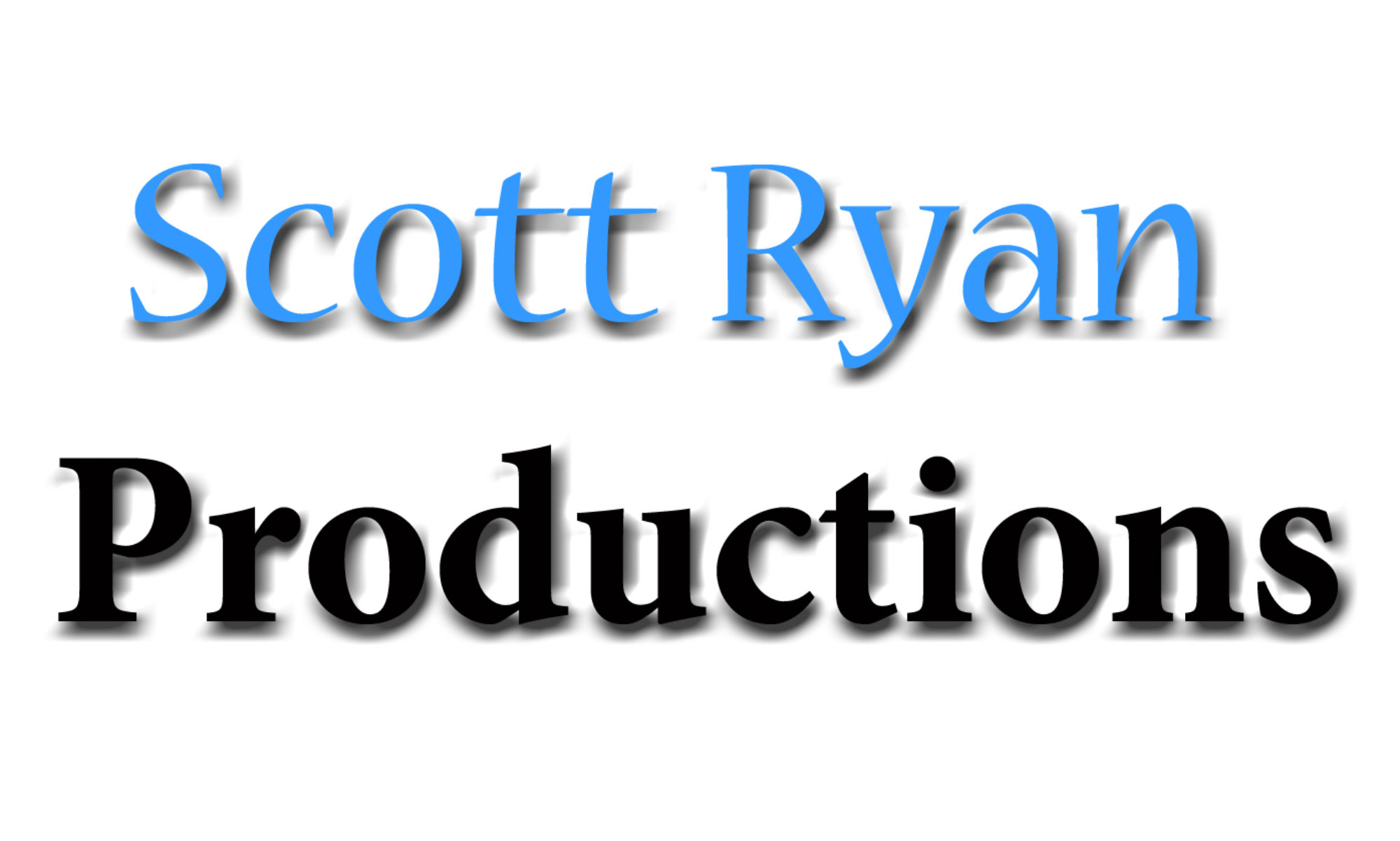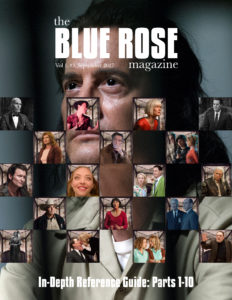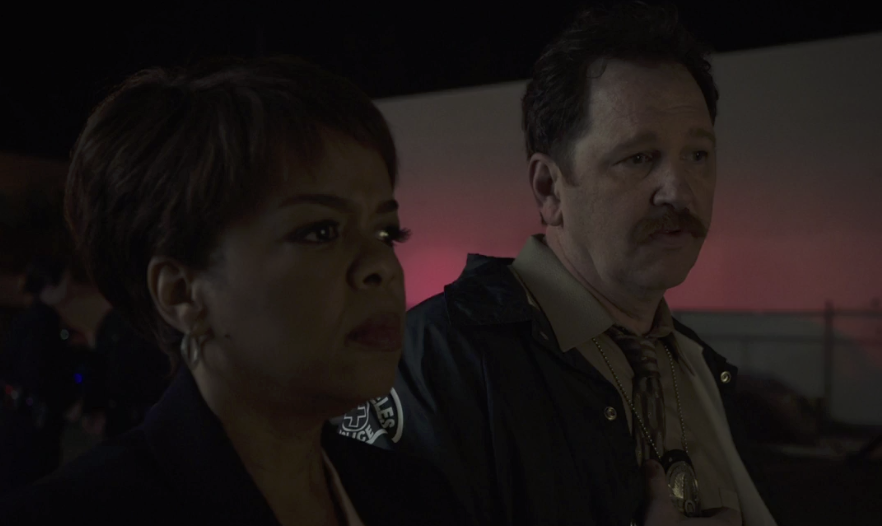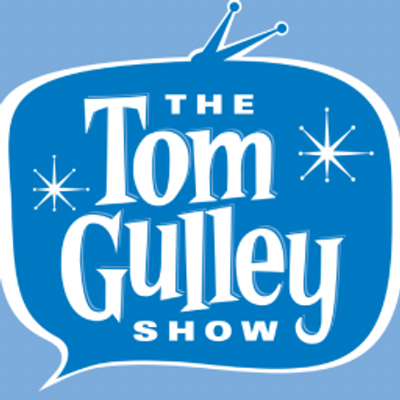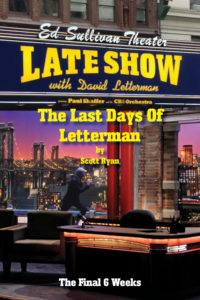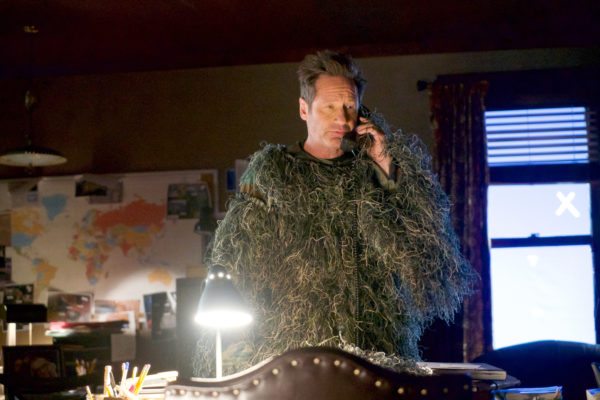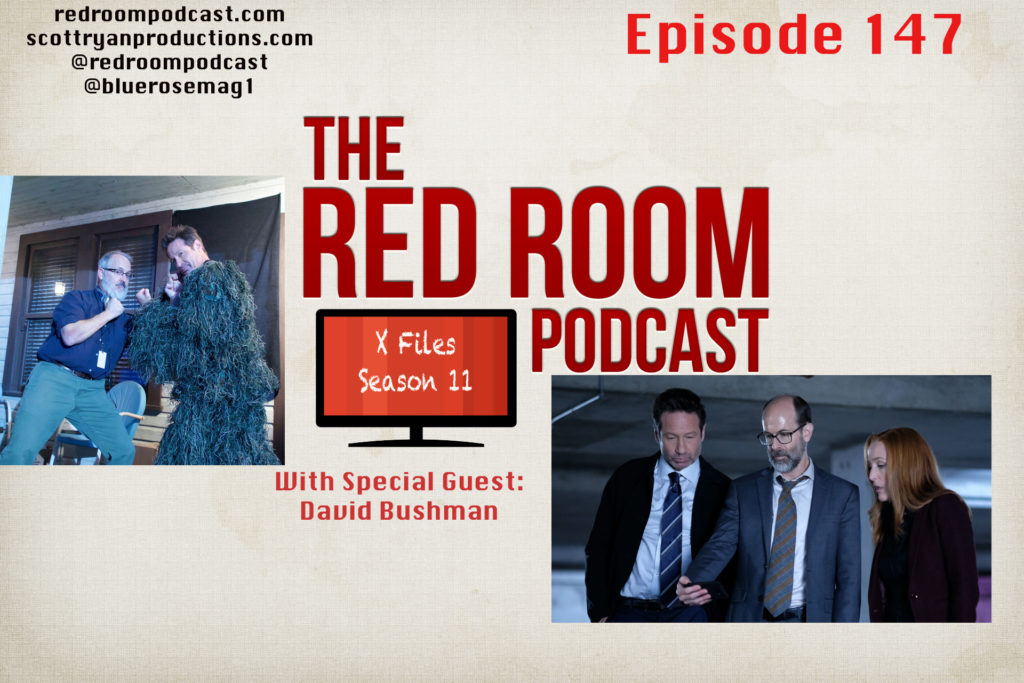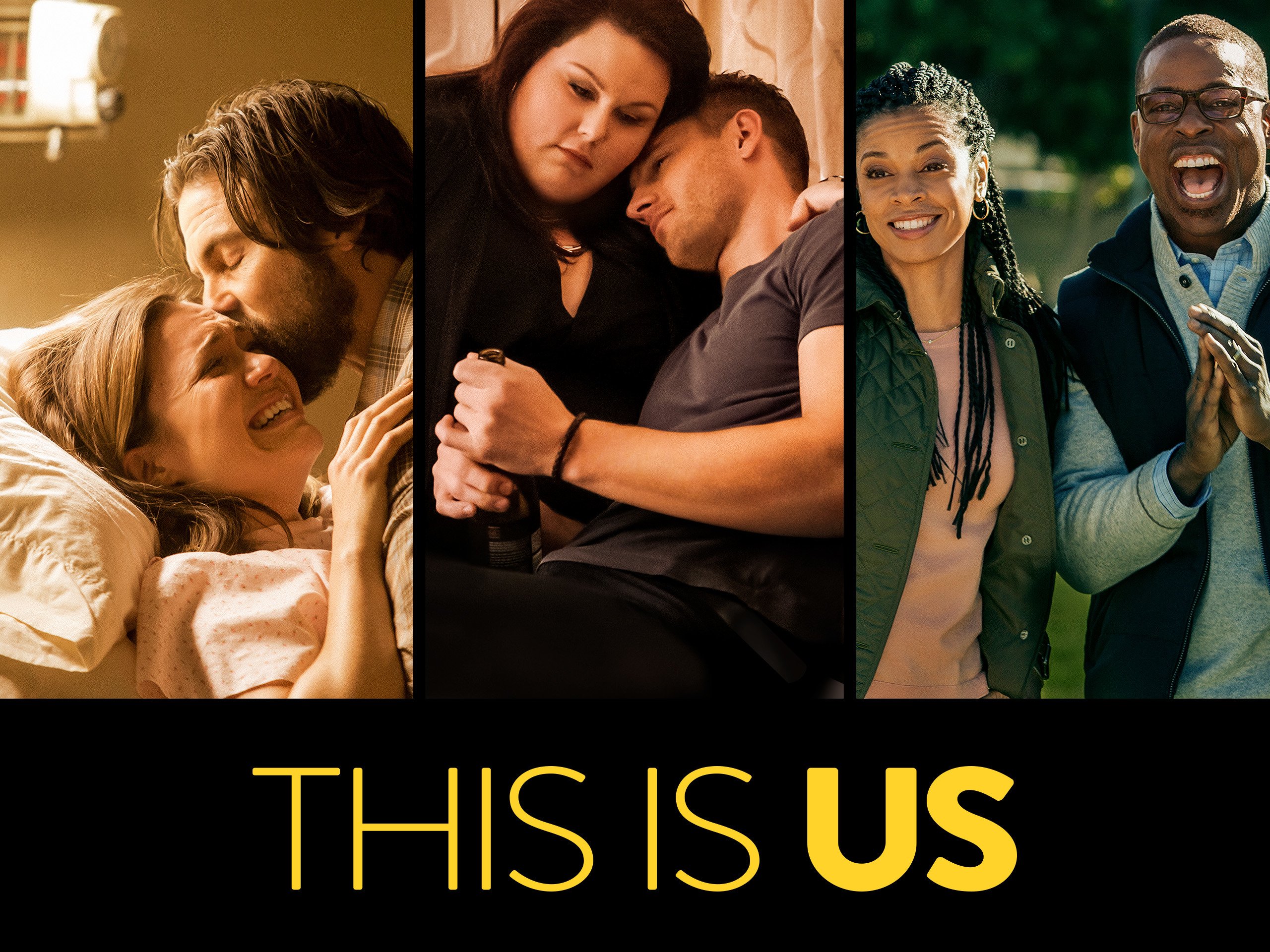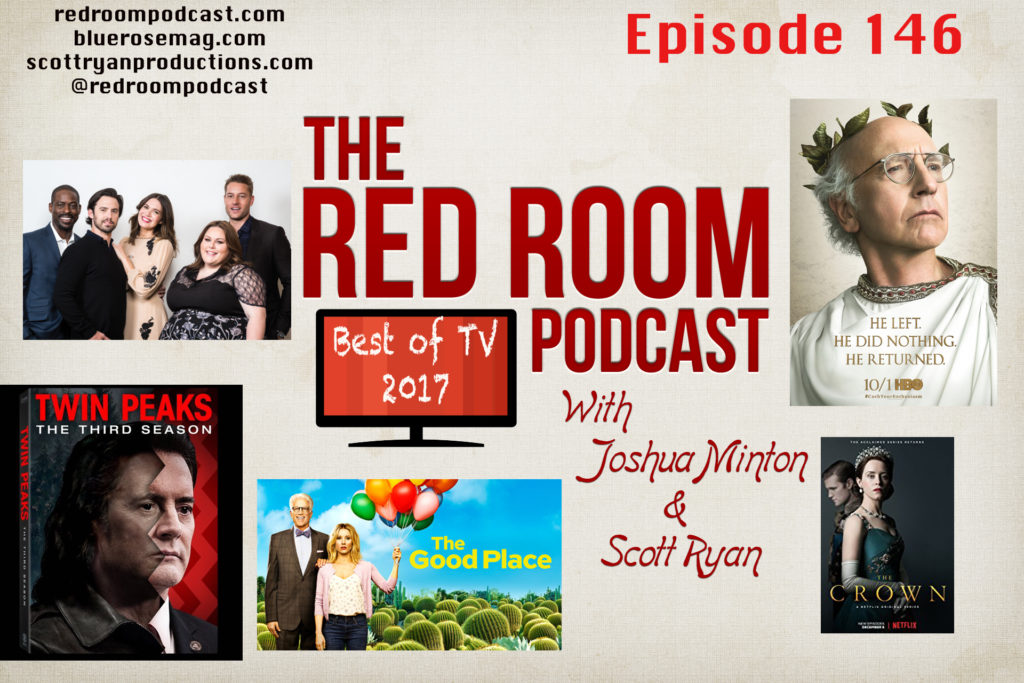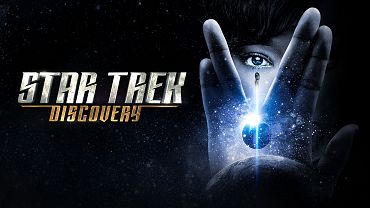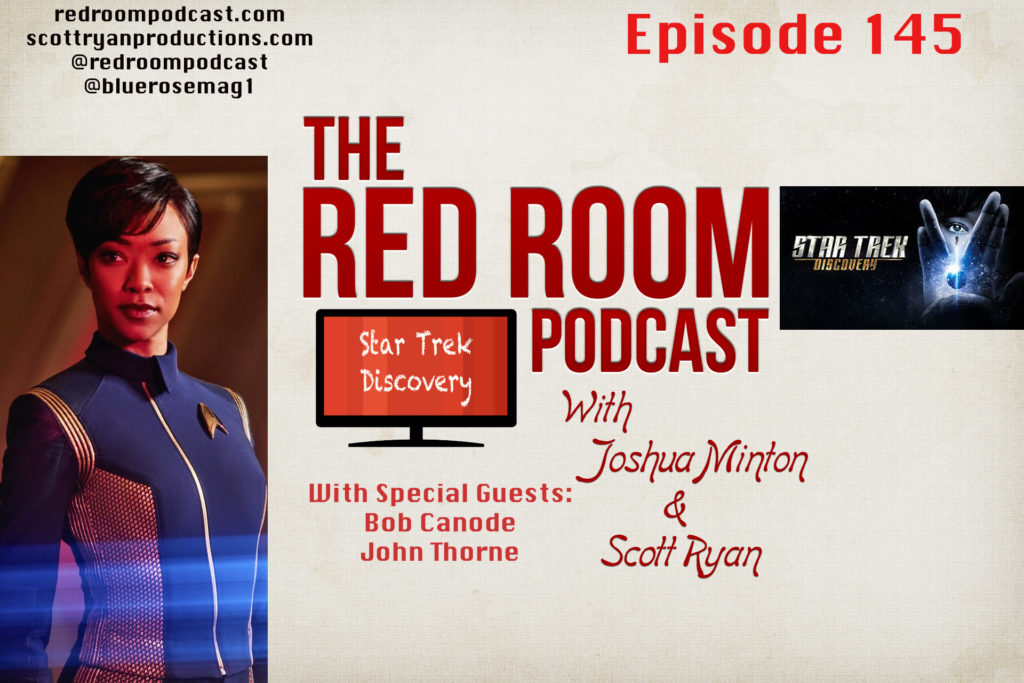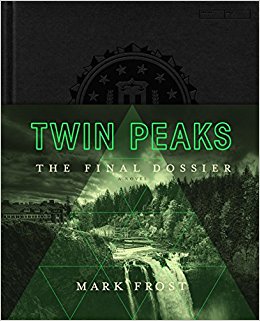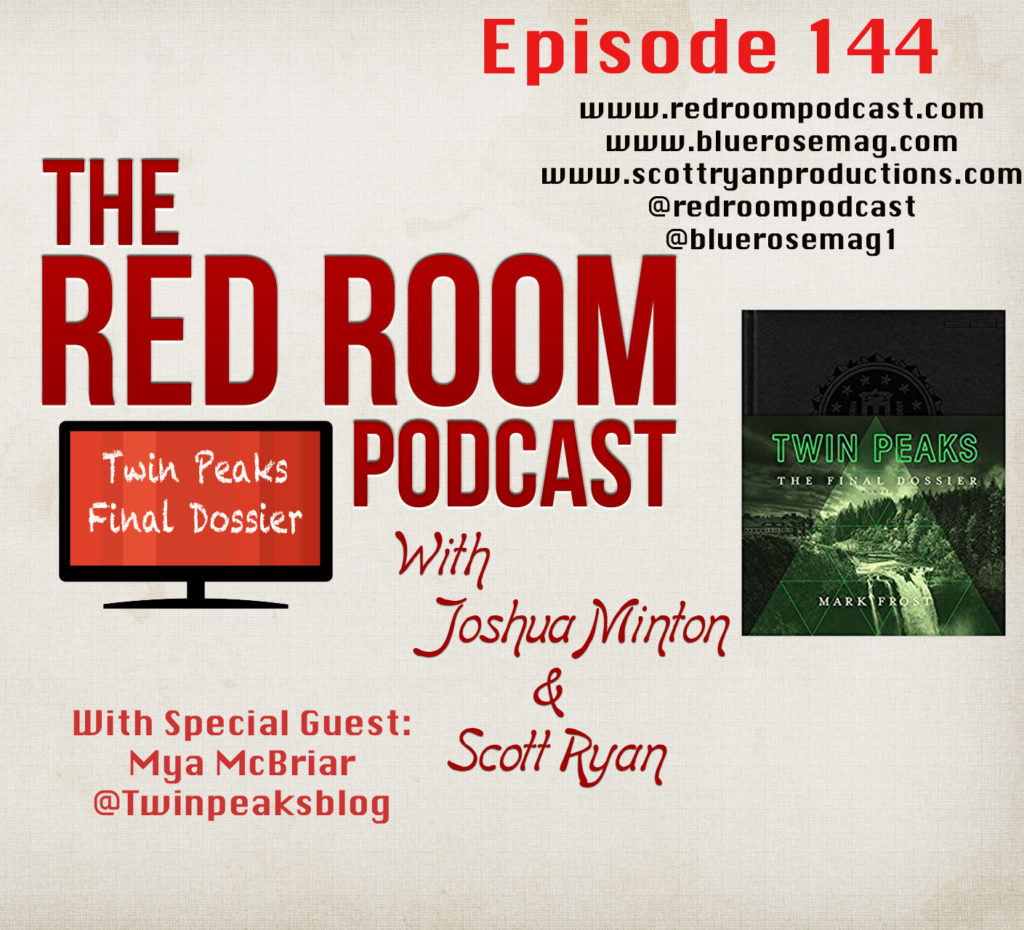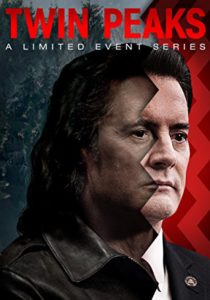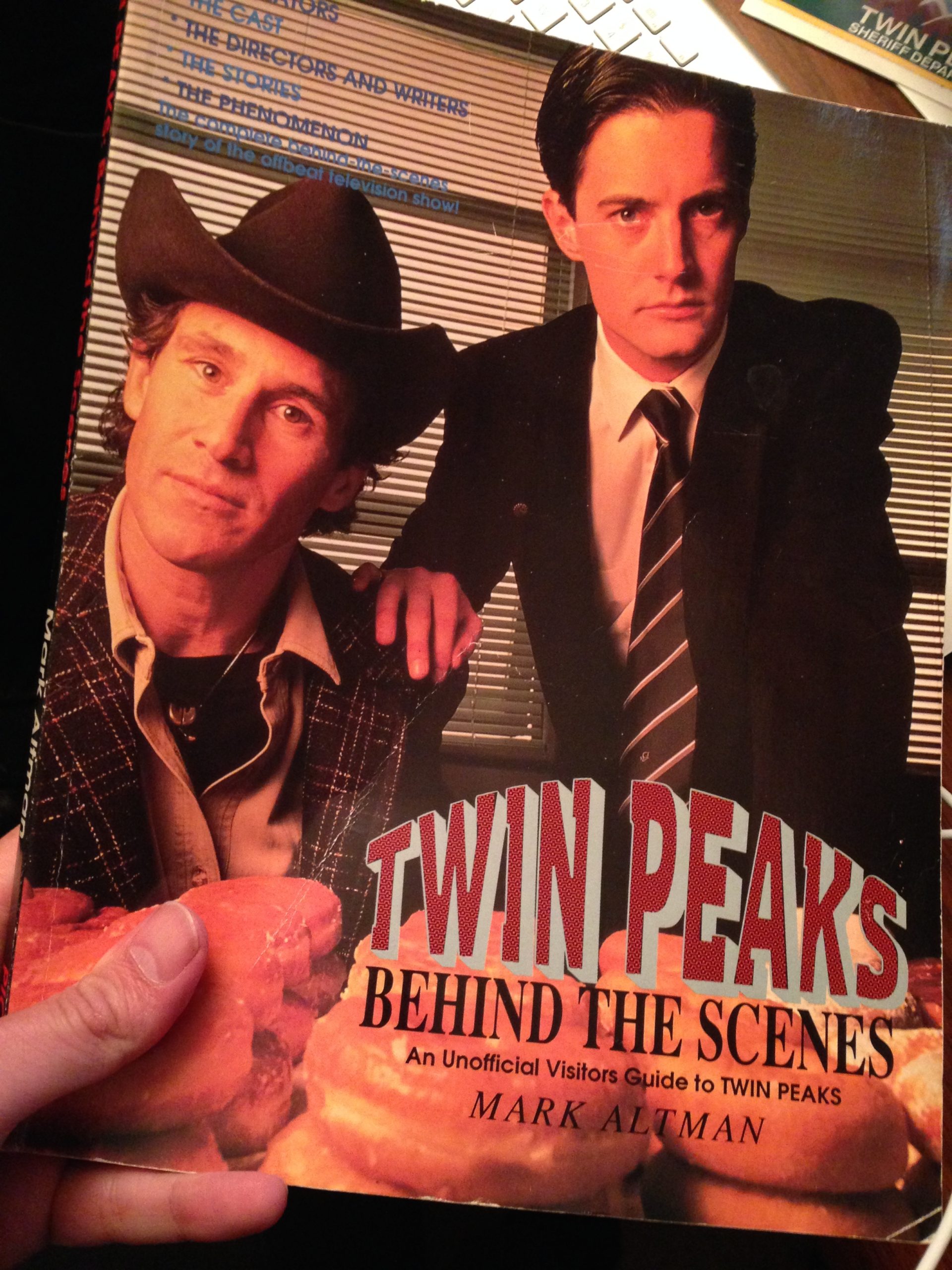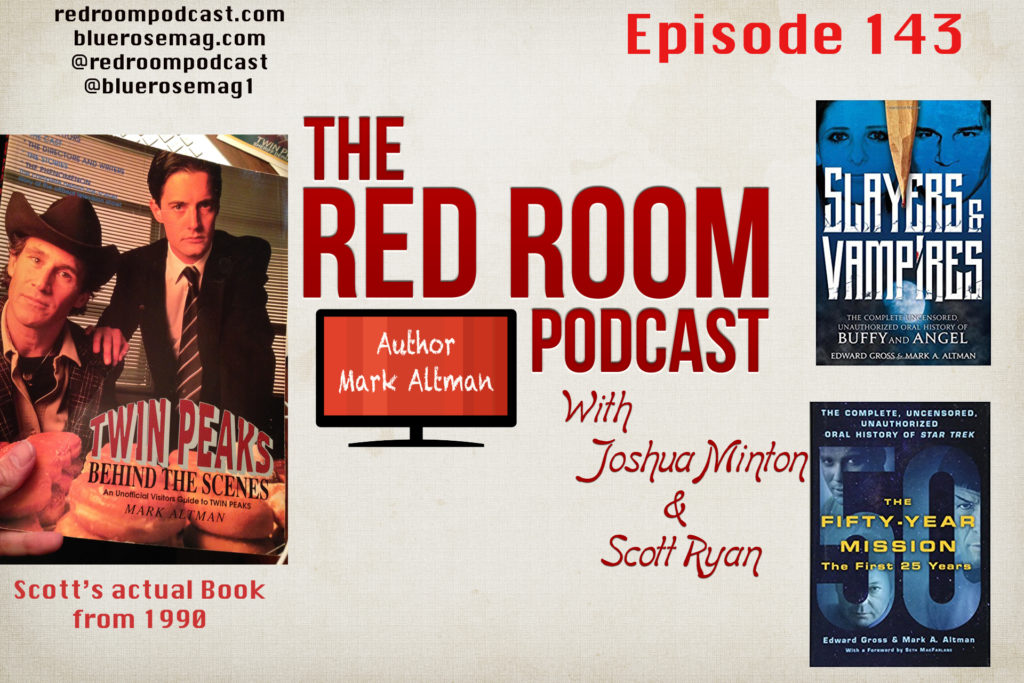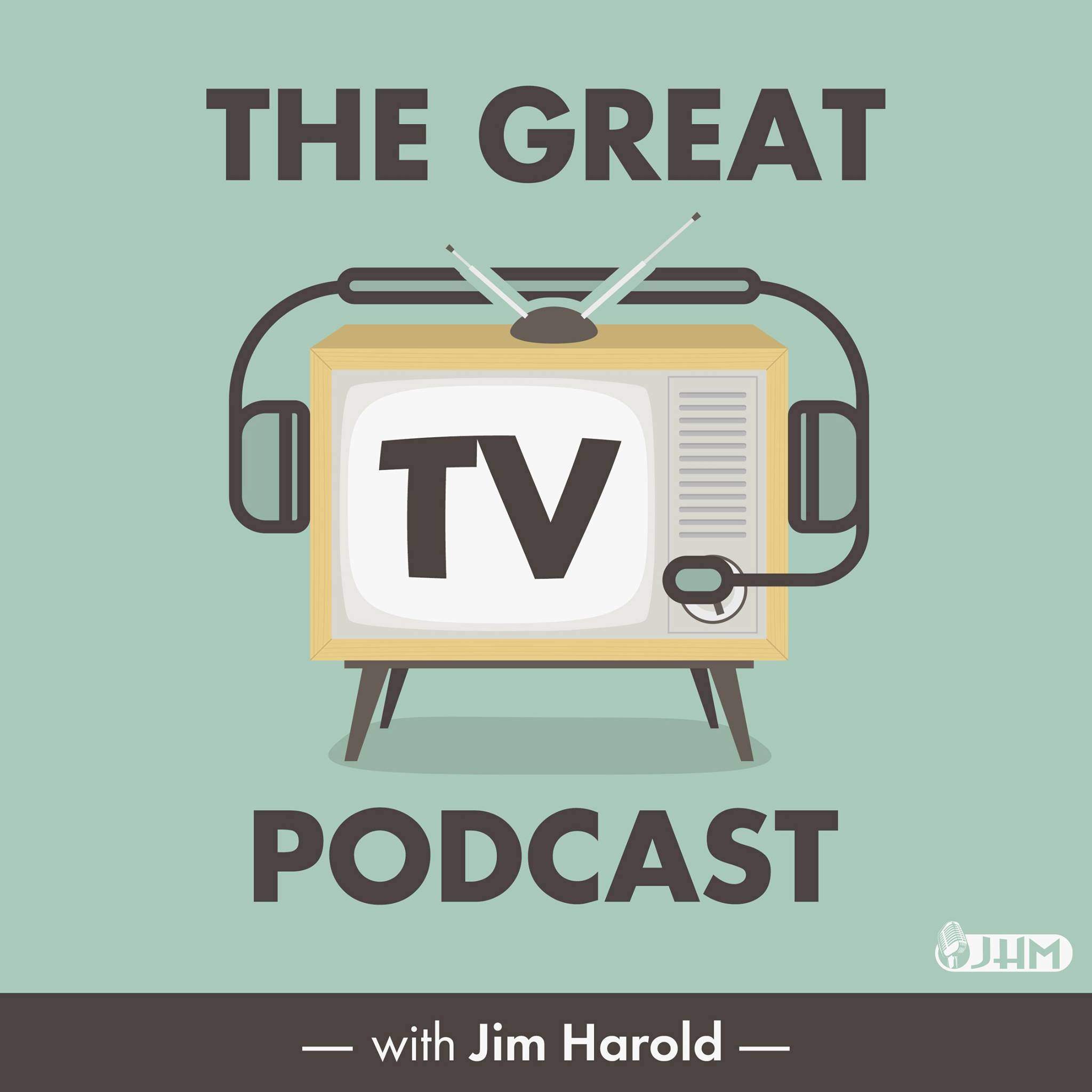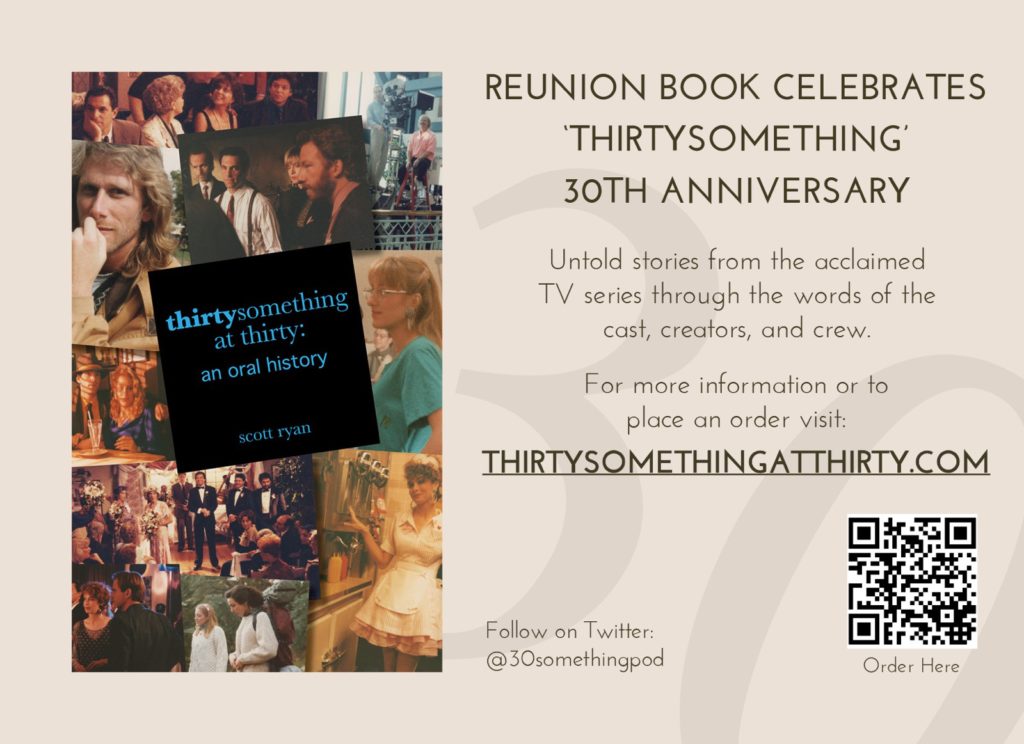Written by The Blue Rose Magazine’s Courtenay Stallings

Gabrielle Norte is an award-winning filmmaker and a member of the Los Coyotes Band of Cahuilla and Cupeño Indians located in Southern California. She is currently a college student majoring in Film Studies. Courtenay Stallings sat down with her to discuss Twin Peaks and Michael Horse (Hawk), who is featured in Issue #6 of the Blue Rose Magazine. A longer interview will appear in Stallings’ book Laura’s Ghost: Women Speak About Twin Peaks.
Courtenay Stallings: Can you tell me a little bit about your background as a filmmaker?
Gabrielle Norte: I developed an interest in film specifically in high school because I had grown up on the reservation. I grew up going to pow wows, and storytelling is such a huge part of my culture, both song and dance. I was always fascinated with it even though I didn’t understand parts of it. In high school, I started looking for ways to use my creative aspects because I always had an interest in the arts in general, but I was looking for a specific thing I could do while also bringing my culture into the mix. So I thought about it more my senior year in high school, and so it made sense that film and TV were something I wanted to do because I loved making videos, and I felt like it was time for Native American people to be represented in film and TV because I grew up watching all these shows and movies, and I never saw myself represented on the screen. I said, “Well, maybe it’s time that I could be the person to change that,” and so I decided to pursue a degree in film. But deciding to be a filmmaker and being a filmmaker are two different things after producing my first short film, I learned all of the time and effort and work that went into it and the journey that it’s been. Being able to get into film festivals — specifically Native American film festivals and hearing how Native people were extremely supportive in what I was doing helped a lot because it’s discouraging sometimes going to a school where there are no Native American people, especially no Native American filmmakers. They don’t really understand why what I am doing is so important to me because I am always very vocal about why it is so important. It’s been an interesting experience to see how non-Native filmmakers have reacted to what I have to say both through my film and just talking about what I’m doing.
CS: Your film “The Wounded Healer” won for best cinematography at the Reelstories Film Festival. It had a striking reoccurring image of ceiling fan in it. Was that inspired by Twin Peaks at all?
GN: I think subconsciously it was. I did catch that the second time I watched it, and my roommate pointed it out. She said, “What’s up with the ceiling fan?” [laughter] I really don’t know. There is something about ceiling fans as a motif that I had to use as a way to tell this story and incorporate the theme of it. I don’t know if I drew directly from Twin Peaks, but maybe subconsciously I did.
CS: I loved your use of the fan. It had this idea of wind and movement and technology, and I liked the way you used it in your film. Can you talk about the process of making your film “The Wounded Healer?”
GN: It was a challenge, and I learned a lot because I had never done something like that to that extent and especially not by myself. It was a learning experience. I just sat down and wrote it. I typically get an idea of one shot, and then I build upon that. The one shot that I saw was the wide shot of a car pulling up to pick up David. I thought, “I can build around this.” I have the location, and I have a general idea. It just blossomed from there. The first time I wrote the script was not that script at all; it was a completely different story. Then, I sat down and rewrote it again, and that’s when it came to be “The Wounded Healer” that was made in production. I didn’t know where to start when making it. None of it went according to plan, of course, because that’s how filmmaking works. I was learning as I did it. There were so many problems, but it was a great experience because now I continue to think about new projects and go into the summer and hopefully shoot something else. I have everything I’ve learned from that process to drive me to do better than I did the first time.
CS: Let’s get into your love of Twin Peaks. When did you first watch it?
GN: I watched Twin Peaks about two years ago for the first time. I always really wanted to watch it. I did a presentation in class, and my topic was on diversity and small-town life. I had mentioned Twin Peaks in there, but I had never seen Twin Peaks. I had always heard of it. I finally made the decision to sit down and watch it. I thought, “I get this now — the draw to it.” I really enjoy this style of storytelling. It was different than any other show I’ve ever watched in my entire life. From then on I was fully involved. I was in it. It was great to watch it and see Michael Horse, of course, because I wasn’t expecting to see a character like that in that show — especially not one that wasn’t extremely stereotypical in the circumstances of the show being very mysterious and all of that. It was a great experience.
CS: Regarding Michael Horse, what do you think stands out about his character or his performance because, like you said, if there is representation, it’s very stereotypical. Was there anything in there that was stereotypical or wasn’t or stood out to you?
GS: His character was written extremely well because Native characters are always just the historical shaman or medicine man or something like that, but his character really was just an everyday guy, but he was also this everyday guy who had this position of leadership and power. He talked like a normal person, and he had this normal life in a way, but they didn’t saturate his character with the normal Native stereotype. He wasn’t this mystic being or anything like that. At times, he talked about Native American folklore and stuff like that, but it wasn’t done in a way that was just out there. He was presented as an everyday Native American, a contemporary image of a Native person. That was really important.
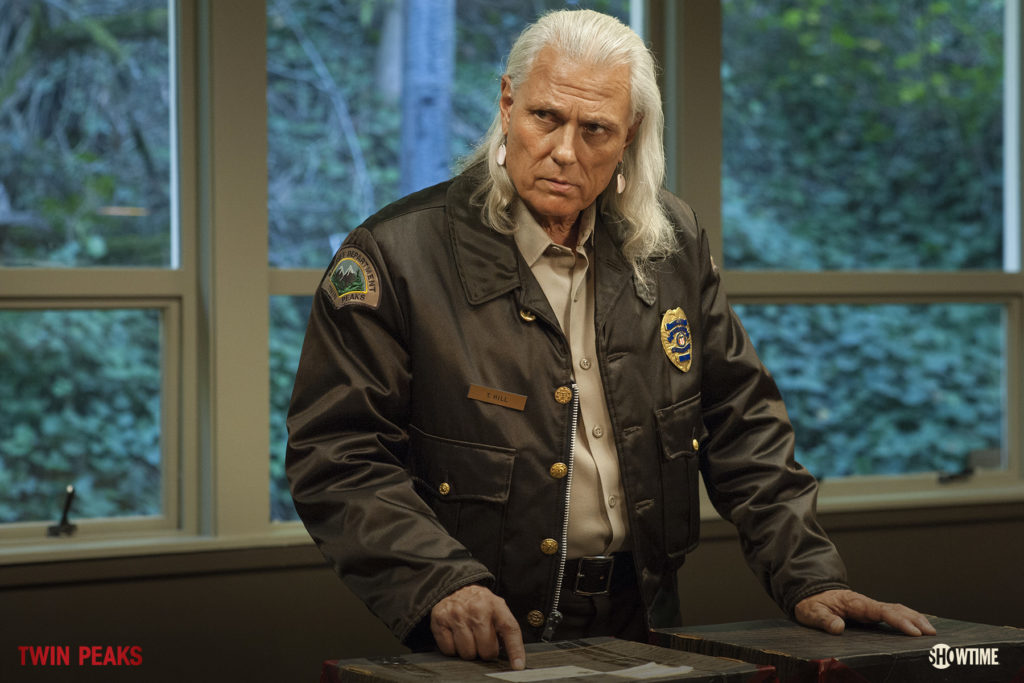
CS: One of the things I love that Michael Horse talks about is how he is not the same person as “The Hawk” (he calls him “The Hawk,” which I love), but there are aspects of Hawk in him and vice versa. David Lynch tends to cast people that are somewhat like their characters. There’s a little bit of truth in the characters that come from the person cast. What about your identity — because we have so many identities as people — as a woman and as a Native American, can you talk about how your tribe and where you came from and how it affected your identity and how you bring the culture that you come from into your work?
GN: I come from a tribe called The Los Coyotes Band of Cahuilla and Cupeño Indians. It’s very rural and very isolated. That whole experience was really unique because I grew up wanting to get out of that because there wasn’t a whole lot to do. But once I left the reservation, I realized just how big of an impact it had on me — going into an environment that was completely different and going into something I really didn’t have a strong background in. My family aren’t filmmakers. I don’t know anyone who is a filmmaker. I barely got a camera as soon as I got to college. So I realized how important my culture was going to be in my college journey as well as a symbol of pushing me to actually finish. I take every opportunity for everyone to understand that that was my background and how important it is in all of my decisions throughout college.
CS: Do you find that people treat you differently when they find out that you are a Native person? Do they look at you differently? Have you ever had any interactions like that?
GN: Yes, all of the time here especially. I think a lot of people think I’m joking because I’m not extremely dark skinned so that throws them off when I say that. I had an experience last week when I told someone. They didn’t believe me at all. I pulled out my tribal I.D. and showed him, and he’s like “Is this real?” A lot of people in general just don’t understand that Native American people exist and that they are just normal people but also all of the things that have happened throughout history are still on our mind, and we’re still trying to change a lot of things.
CS: What about representation on TV and film? You touched on this a little bit because there are so few Native people who are telling those stories behind the camera and in front of the camera. What have you seen in terms of representation and what do you hope to change in your own storytelling in terms of how Native people are represented?
GN: I think we are seeing a lot more Native actors get Native roles, but these movies are typically historical movies so it’s still in the realm of this is a stereotypical historical telling of our culture. You never just see a Native American going about their normal day, driving a car or going to a job. None of that exists. In film, specifically, it’s historical lately. Then you have very little, if any, on television. They are trying. Of course with Twin Peaks, that’s a great example. I just finished watching The X-Files, and Michael Horse played a role in one of the episodes in the first season. That was really important, too, because that showed a lot of great things by actually including Native actors and having it set on a reservation. It wasn’t overly “Native American.” That was one recent example I saw, and that show was in the ‘90s. It is just another prime example of the normality that should be shown of Native Americans, but representation is severely lacking and often severely incorrect. A lot of the movies that are coming out nowadays have Native actors, but it’s always a supporting role. They are never the protagonist. You never see a Native face as the face of a movie poster or Native stars carrying a movie. It’s always like they are kind of there, but they are not as important. You typically have a White protagonist who is there to play the White savior role and save the Native supporting actor. That needs to be changed to depict Native Americans in a contemporary sense because we are still stuck in a historical sense.
CS What did you like about Michael Horse’s character Hawk?
GN: I like how laid back he is. He has these really funny moments, too, where he is just a normal guy. I relate to him. He seems like the most normal one out of everyone there. The most level-headed and put-together one there, which is why I think David Lynch and Mark Frost wrote him as the main person in Season 3. He is just very relatable as a human being. You need that in Twin Peaks when everyone is out there. He grounds you, and he just has a presence that’s welcoming as well.
CS: In Season 3, Michael Horse/Hawk had a much bigger role. No one could have anticipated what we were going to see in Season 3. What were your impressions of him and the role he played in Season 3?
GN: I was extremely happy to see that he was given a lot more screen time because I think he deserved that, and again he was there to kind of ground everyone because things are all unravelling. He was a leader. That’s an extremely important role especially for Native actors. He’s almost like a symbol of resilience for Native people in being a leader in the role that he’s in. It was extremely important, and I am extremely happy that David Lynch and Mark Frost did give him that time because he did deserve more of that. And maybe they would have given him more time if the original series had carried on.
CS: Do you have a favorite character from Twin Peaks?
GS: I love Cooper, of course, because he has this charming personality, and he really just wants to do the best thing possible. You need those characters when things are just a little too heavy. He really is accepting of everyone. I think that’s very important as well.
CS: What does Twin Peaks mean to you personally?
GN: I just like David Lynch’s style in general. I’ve seen some of his movies. I like how it doesn’t have to adhere to any television model, and it very much does focus on the art aspects of storytelling. I think that’s lost a lot today because we are so worried about the industry and ratings and making sure this show sells. With Twin Peaks, we are able to watch it and enjoy the art of it and the deeper meanings and maybe not understand everything because that is not really the point. Even with art in general you don’t always get all of the meanings that the artist intended. With Twin Peaks it is exactly that. You can kind of make your own meaning and craft your own meaning. For me, it was unique, and that’s what I always look for in storytelling — something that is just different. I get tired of watching the same thing over and over and over again and Twin Peaks was not the same thing so I felt some kind of connection. I thought, “This is weird. I love it. I’m here for it. Everything about it.”
Gabrielle Norte is currently working on a short film called “People Watching” shining a light on the epidemic of Missing and Murdered Indigenous Women and Girls. Follow her on Twitter: @gabriellenorte and Instagram: @nativekidwithacamera.
Subscribe to the Blue Rose and Get Issues 1-8 with the :-All Special.
